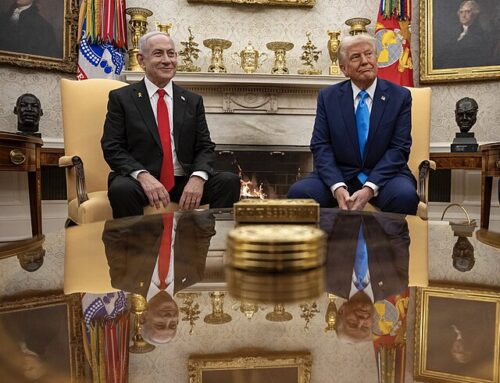I’m constantly impressed by the quality of analysis, not to mention the writing, of the periodic posts on The Head Heeb‘s weblog. And I don’t just mean those dealing with Israel and the region.
Take a look, for instance, for his February 9th post on the jockeying between the different parties vying for the hearts, minds, and soon votes of Israelis.
>> Arieh
~~~~~~~
The deadline for Israeli political parties to register their lists with the Central Election Committee expired at midnight local time, and a total of 30 factions beat the clock. Between 10 and 12 of them, not including the War on the Banks Party or the pro-marijuana Green Leaf, are likely to be represented in the next Knesset.
As usual, the last few days were marked with frantic maneuvering for unity deals, some of which were uncharacteristically successful. As usual, Degel Hatorah and Agudath Yisrael managed to put aside their differences and re-create United Torah Judaism for the duration of the campaign, but the Mafdal-National Union merger was less expected. The two parties’ decision to run a united list makes political sense given that both draw from the national-religious pool of voters and Mafdal was unlikely to pass the electoral threshold on its own, but past attempts at unity had always fallen apart amid bickering over precedence. This way, at least two of the Mafdal MKs are likely to return to the Knesset, although the merger is not without its costs; Mafdal is mistrusted by some of the more hard-line voters, and some of them may desert the united list for parties even farther right.
There was also some consolidation among the Arab parties, albeit possibly not enough. The last-minute attempt to create a united Hadash-Balad list, which would have been a bad ideological fit in any event, fell apart due to disagreements over list places. At the same time, the smallest and most vulnerable of the Arab factions was augmented when Ahmed Tibi agreed to switch his Ta’al party from its electoral alliance with Hadash to the United Arab List. And Hadash made up for the loss of Tibi by picking up Hashem Mahameed, the former Umm al Fahm mayor whose solo run in 2003 resulted in 20,000 Arab votes being wasted. With three credible Arab lists competing instead of four, the chances that all of them will return to the Knesset are higher, although turnout and the level of support for Zionist parties among Arab voters will both be important.
In any event, the campaign has now officially begun, although it has in fact been in progress for several months. At the moment, it still looks like Olmert’s election to lose. Today’s Dahaf Institute poll has …



This comment has been removed by a blog administrator.